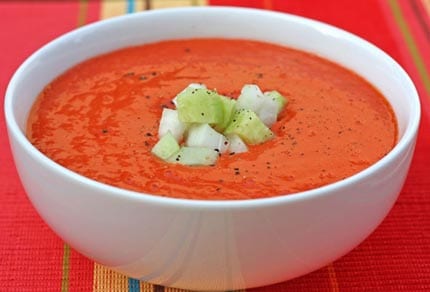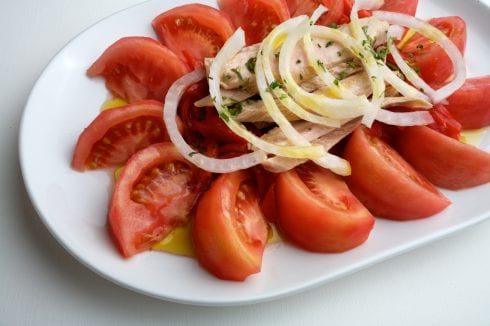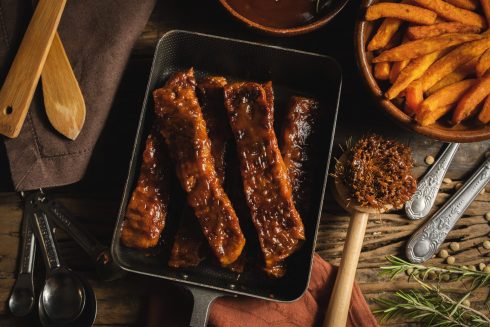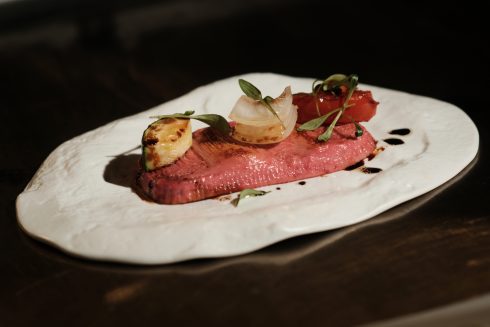WHEN I began eating a more plant-based diet I was in London, so you can imagine the number of restaurants serving colourful ‘Instagrammable’ vegan dishes, and specialist food stores overflowing with meat alternatives.
Not to mention grains and pulses you never knew existed, and even vegan cheese delis.
Most supermarkets in the UK now have a pretty great offering too, with full aisles dedicated to the surge of meat-free brands competing for space.

So, when I came to Spain and wasn’t immediately handed a vegan grain bowl, complete with a vibrant beetroot hummus and edible flowers, alongside my oat milk flat white, I immediately deemed it impossible to be a vegan in the meat-eating country that is Spain.
Especially after the Food and Agriculture Organization named it as the highest meat-consuming country in the EU (by 22%!).
Oh, how wrong I was.
Spain’s vegan scene is miles ahead of many countries. Granted, where you live will change how easily accessible vegan food products are but sometimes you just need to know where to look.
Many of the supermarkets such as Carrefour, Mercadona, Aldi and Lidl all have a good selection of meat and dairy alternatives – some even do vegan frittatas. Just make sure you’re looking in the fridges, not the freezer section.

For people who have been vegan for a long time and are used to having to cook their own food from scratch, Spain is a dream. The fruit and vegetables grow in abundance; vibrant, juicy and full of flavour. And while the quality in supermarkets is as good as the market stalls, the latter will cost half the price.
Pulses and grains are easy to find too, and you can even buy chickpeas frozen – a game changer for people who never make it through a whole jar.
Since moving here my staple supermarket ingredients have been: Aubergine, courgette, tomatoes, fresh herbs, couscous, lentils, chickpeas, tofu, Alpro yoghurt, and tahini – in my opinion, any dish laced with tahini is a winner.
Going out does have its challenges though. Not every restaurant clearly marks their dishes with ‘vegan’, and if your Spanish is limited, communicating that you don’t eat anything from an animal could be an issue – especially to a typically Spanish waiter whose diet consists of jamon and manchego.

If you find yourself in a place like this, there are still some tasty options you can have: Gazpacho, Salmorejo (traditional cold tomato-based soups – ask for it without the egg or jamon on top), Pan Con Tomate (bread with tomato, salt, garlic and olive oil), salads, roasted bell peppers, fried eggplant and artichokes, and vegetable paella is available in most places.
If you’re prepared to do a little digging before heading out, (a post on one of the local Facebook pages is a good place to start or have a look on www.happycow.net) you might be surprised at just how much you find.
On my plant-based investigation I quickly found out that Spain is bursting with vegan shops and restaurants. Granted, the big cities like Seville, Madrid and Barcelona have some of the best offerings, with hip new cafes, restaurants and bars serving up vegan cakes, poke bowls, colourful brunches, and smoothies.

Going one step further is Compasion, the first vegan butcher to open in Madrid. Using a unique blend of vegetables, wheat protein, pulses and seasoning, founders Scarlett Rojas, Elena González and Eduardo González, have created a full range of ‘meats’ including entrecot and sirloin steak, sausages, marinated ribs, and a selection of ready meals too.
In Barcelona, innovative tech start-up Novameat have recreated well-known cuts of meat, that are astonishingly close to the real thing, yet made completely of plant-based products.
The Barcelona-based company uses micro-extrusion technology to create super thin filaments (threadlike fibres found in animal or plant structures) of between 100 to 500 microns in diameter, then entwines them using a 3D printer to create a meat-like structure, replicating fat and muscle.
So far, they’ve recreated beef and pork cuts and hope to expand the business in 2022, making their incredible meat substitutes available to restaurants across Spain.

But if you don’t live in the major cities, there are plenty of options still available across the Costa del Sol.
Marbella and Malaga have the biggest vegan food scene, with restaurants such as MIMO, Estacion Quimera, Andino Gastrobar, Gioia and Beity rating highly.
A little further away, in San Pedro, is Broccolini’s Vegan Bistro and Health Shop. The whole menu is vegan-friendly, and you can do your weekly shop while you’re there too.
In La Duquesa, Jimmy’s Kitchen is a firm favourite with locals and in Estepona, Love by Noya, and Madubar are always overflowing with hungry customers. If you’re someone who enjoys the perfect ‘avo on toast’ after a soul-enriching yoga session, Wild Cafe & Restaurant often hosts yoga classes followed by delicious brunch. And the English Butchers just down the road stocks frozen Quorn and Linda McCartney products – her sausages were a favourite of mine in the UK.
So, whether you’re a vegan, vegetarian, pescatarian or even flexitarian, Spain more than caters to every dietary need. The days of only being able to eat a bowl of chips or a roll of bread are far behind us – you just have to look in the right places.
READ ALSO:

